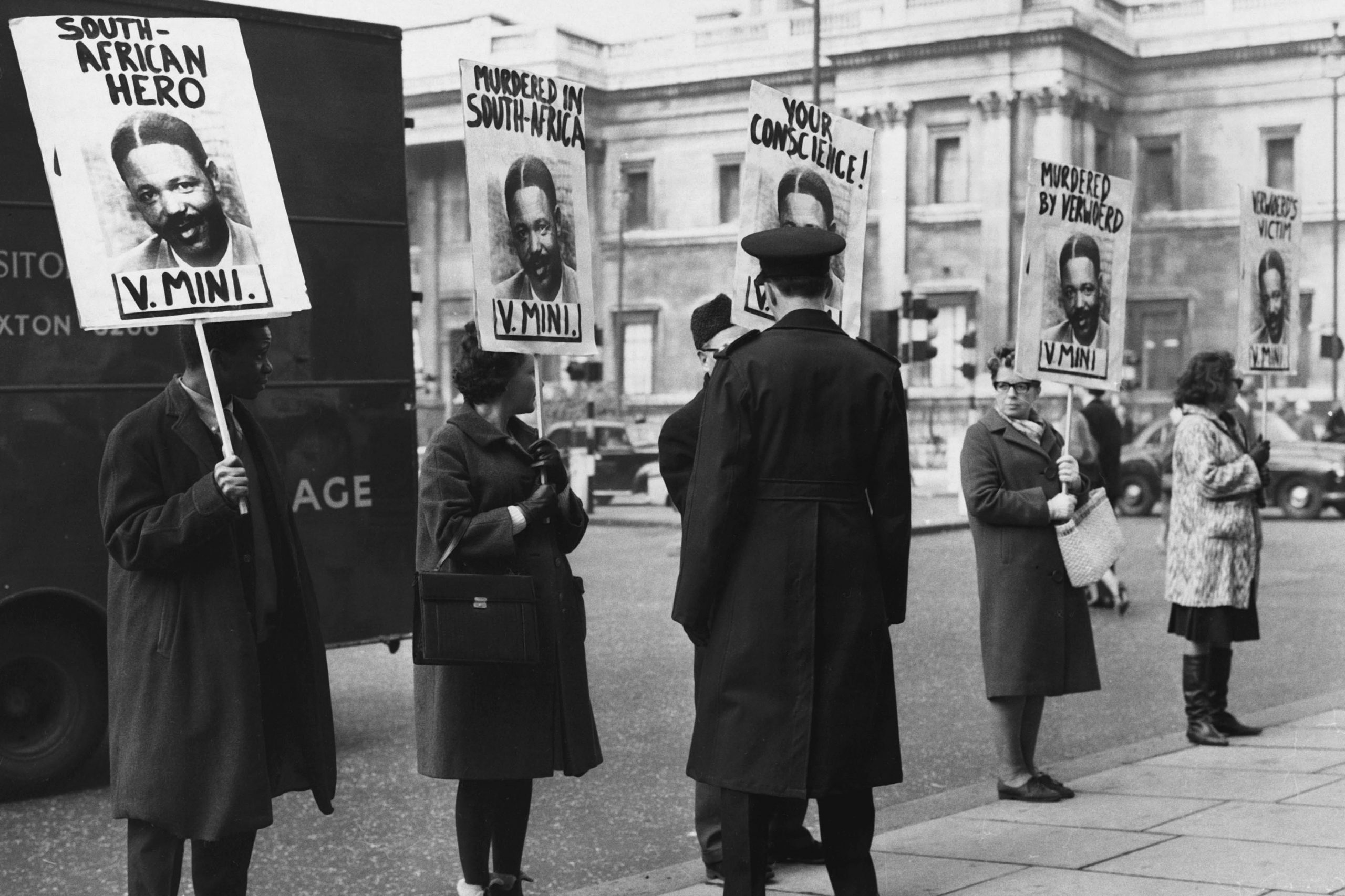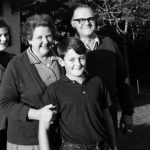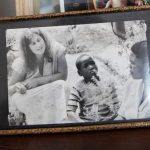Political Songs | Ndodemnyama – Miriam Makeba
The night before being hanged, Vuyisile Mini’s booming voice sang the protest song he penned, defying the state and giving Mama Africa a jumping tune for a new generation.
Author:
14 February 2020

It was 5 November 1964, their last and devastatingly sad evening before leaving this world. Three combatants of the banned ANC’s military wing Umkhonto we Sizwe (MK) – Vuyisile Mini, 44, and his comrades Wilson Khayinga, 38, and Zinakile Mkaba, 35 – were in the death cells at Pretoria Central Prison.
Born in Port Elizabeth in 1920, Mini joined the ANC in 1951 and became a union organiser and activist responsible for coordinating metal workers. By 1956, however, Mini was one of 156 defendants in the Treason Trial, alongside Nelson Mandela and Oliver Tambo. When the state’s case collapsed for lack of evidence, Mini was discharged on 20 April 1959.
In 1961, he was recruited into MK’s Eastern Cape high command and was arrested again on 10 May 1963, together with Khayinga and Mkaba. They were charged with 17 counts of sabotage and other political crimes including complicity in the January 1963 death of Sipho Mange, an alleged police informer.
In March 1964, they were sentenced to death.
There was no reprieve, no return to freedom for these political prisoners, only a cold-eyed predictability about this last step-by-step process to the hangman’s noose. The death penalty system was as rigid as the double-storey, high-security Pretoria Central Prison, perfected by apartheid’s uniformed officers. Human rights lawyer Brian Currin later described it to The New York Times as “a little factory where they just process hangings”.
Vrye Weekblad editor Anneliese Burgess, who nine years ago worked with a team that converted the gallows into a memorial that made a stand against capital punishment, recently sketched this chilling process. Executions happened 3 500 times before capital punishment was declared unconstitutional in 1995.
As a norm, convicted prisoners were cruelly kept in limbo on death row for months. Then suddenly and unexpectedly, they were weighed and measured for the right rope on the gallows. That meant the next morning they would be hanged.
Early that morning they could go to the chapel to pray for the last time, before walking up the 52 steps to the gallows room on the first floor where they would be blindfolded. Then they would be led into the death room to be positioned on the wooden trapdoor where the thick rope would be slipped over their necks. After the hangman had done his job, their lifeless bodies would be hosed down, put in unmarked coffins and buried in unmarked graves.
Related article:
Like many before and after, Mini and his two comrades experienced something similar.
With hours to go before their execution, the three men started to sing. They were communicating “to the prison in gentle melancholy song that their end was near … It was late at night when the singing ceased, and the prison fell into uneasy silence”. This is how Ben Turok described it in Sechaba, the official ANC journal. Turok, a previous co-accused of Mini’s in the 1956 Treason Trial, was serving a three-year term in the Pretoria prison for MK activities.
He continued: “I was already awake when the singing began again in the early morning. Once again the excruciatingly beautiful music floated through the barred windows, echoing round the brick exercise yard, losing itself in the vast prison yards.
“And then, unexpectedly, the voice of Vuyisile Mini came roaring down the hushed passages. Evidently standing on a stool, with his face reaching up to a barred vent in his cell, his unmistakable bass voice was enunciating his final message in Xhosa to the world he was leaving.
“In a voice charged with emotion but stubbornly defiant he spoke of the struggle waged by the African National Congress and of his absolute conviction of the victory to come. And then it was Khayinga’s turn, followed by Mkaba, as they too defied all prison rules to shout out their valedictions.
“Soon after, I heard the door of their cell being opened. Murmuring voices reached my straining ears, and then the three martyrs broke into a final poignant melody which seemed to fill the whole prison with sound and then gradually faded away into the distant depths of the condemned section.”
Related article:
Mini was a gifted actor, dancer, poet and singer. He wrote some of the most influential resistance songs in the early years of apartheid. As it says on South Africa History Online: “He is remembered for the songs he composed as well as their delivery in his powerful bass voice, sometimes militant, and at other times nostalgic.”
The last freedom song the three men sang on 6 November 1964 as they were walking to apartheid’s gallows was Ndodemnyama we Verwoerd! Composed by Mini in the 1950s, it was the ultimate act of defiance to sing a protest song that warned the all-powerful white ruler of that time, Hendrik Verwoerd, that black people were coming.
As jazz historian Gwen Ansell wrote in her book Soweto Blues, the warning to Verwoerd was fulfilled two years later when the prime minister was stabbed to death by parliamentary messenger Dimitri Tsafendas, a Greek-Mozambican of mixed race “but passing for white, driven to insanity by the issues – political and personal – around his identity”.
The meeting of Makeba and Mini
A year after Mini’s execution, Miriam Makeba released an album in 1965 with Harry Belafonte called An Evening with Belafonte/Makeba. It included a great version of Ndodemnyama we Verwoerd! that is part marabi and part jazz, a fully beguiling call and response, with a compelling beat, a signal to dance as well as protest.
Despite international calls for leniency, Mini and his comrades were executed and secretly buried in paupers’ graves at Rebecca Street Cemetery in Pretoria.
This was to be the pattern throughout the 1960s and 1980s (despite heightened political activity, there were no political executions between 1970 and 1978). Pleas for clemency were ignored by the apartheid government.
Related article:
The last political execution was in September 1989. The next year the government and the recently unbanned ANC agreed on a moratorium on the death penalty. Following 1994’s democratic election, capital punishment was abolished on 6 June 1995.
The Pretoria Central gallows were dismantled the following year. This was in line with world standards – globally, hangings have steadily been on the decrease. Amnesty International recorded at least 690 executions in 20 countries in 2018, down by 31% from 2017 – it’s the lowest figure in the past decade.
This “eye for an eye” form of punishment remains morally wrong. “Executing someone because they’ve taken someone’s life is revenge, not justice,” Amnesty points out. “An execution – or the threat of one – inflicts terrible physical and psychological cruelty. Any society which executes offenders is committing the same violence it condemns.”
In South Africa, a number of populist politicians have called for the death penalty to be reinstated. Veteran campaigner against this form of punishment, retired law professor Jan van Rooyen warns it is “a cheap way for politically inclined people to pretend to their fearful constituencies that something is being done to combat crime”.
It will also return us to a barbaric past, which people like Vuyisile Mini fought against.



